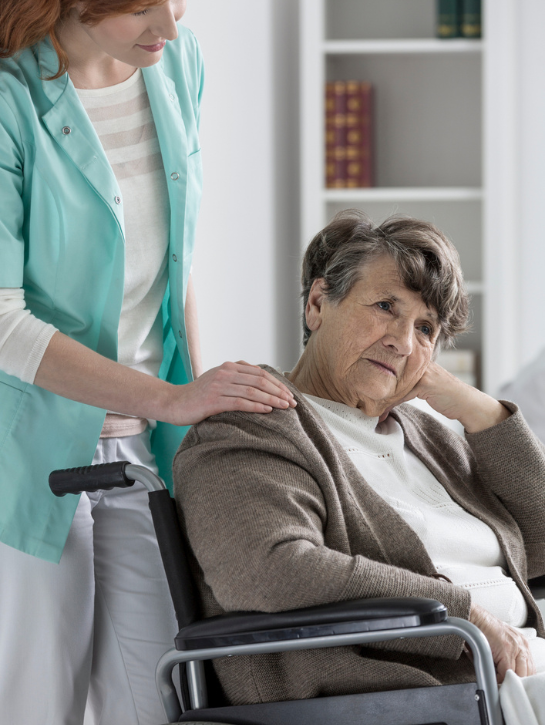It’s not untrue to say that the COVID-19 pandemic has affected every part of our daily lives. From going to work to dining out to traveling, the coronavirus is our generation’s great disruptor. Its effects can also be felt through loss of employment, food insecurity, and reduced access to essential medical and social services, an industry that’s trying to protect its workers from coming in contact with the virus.
The government usually outsources social services, such as homeless shelters, workforce development programs, and community centers to healthcare community-based organizations (CBO’s). However, funding for CBO’s, which includes government contracts, rarely pays the entire cost for social service organizations to deliver the services people need. What’s more, funders usually restrict their grants to direct program costs. This ends up resulting in massive underfunding that leaves many nonprofits with low cash reserves and makes them very fragile during a time like COVID-19.
This has made social services workers susceptible to being exposed to the virus. With adequate funding and attention to risk management, social service staff could be kept safer. So, how can social services mitigate risk?
Here’s a closer look at the role that COVID-19 plays in the industry and how important risk management is.
A Clear and Present Danger
The presence of COVID-19 in communities poses a real and evident risk to all healthcare workers, especially those caring for infected patients. Whether contracting the disease from asymptomatic patients or those suffering from the virus, it’s clear that healthcare workers are at high risk. The same can be said for social service workers who come in contact with members of the community who may be more exposed than others, such as those from poor income neighborhoods or those who are homeless.
During the SARS outbreak in 2003, healthcare workers made up a significant number of infected cases. And with social service workers always being public-facing, similar numbers are expected during COVID-19.
Reducing the Risk of COVID-19 Among Social Services
The minimization of exposure to the virus is essential. Simple routines can help to decrease provider risk, including performing proper handwashing and hand hygiene, wearing masks and face shields, avoiding touching their face, practicing respiratory health, and maintaining as much physical distance as possible.
Additionally, some agencies have set up services over the phone or virtually, allowing clients to reach them digitally instead of needing to meet in person. If this is an option for clients, it can help minimize exposure and infection. For those who cannot access online/digital services, meeting in person should still be a choice. However, only essential services should be offered in person. The issue here is finding the right balance of meeting their community’s needs while minimizing unnecessary contact.
In some cases where social service workers have to be face to face with clients, it’s critical to work with personal protective equipment (PPE), including masks and face shields. Furthermore, changing into clean clothing before leaving work and showering as soon as they get home can help protect themselves and those around them, especially family members living with them. Failure to follow these steps could lead to an increase in infection rate or exposure.
Training, Monitoring, and Working Within Limitations
While careful donning of PPE is important, the higher risk of social service worker contamination occurs when removing the PPE while working with clients in the community. Managers tasked with oversight with social services workers should personally participate in training and practice sessions for selecting, wearing, and removing PPE on top of regular observation and coaching during shifts.
Altogether, risk management is a purposeful approach to keeping staff protected from contracting and spreading COVID-19. This strategy focuses on the consequences of different courses of action in order to minimize risk. However, as long as the virus is still spreading, social services and clinical workers will remain at risk. Ensuring that all employees are abiding by the basic rules, such as social distancing, wearing PPE, and washing and sanitizing themselves and their workstations can help limit the spread of the novel coronavirus.
In this case, social services insurance may provide the industry with the right level of coverage to protect workers and the agencies they work for amid any COVID-19-related claims. While the insurance industry is uncertain how the coronavirus claims will impact them, having social services insurance in place will provide peace of mind and the necessary protection to keep agencies insured and protected.
About Tangram Insurance Services
Located across the Golden Gate Bridge, just outside of San Francisco, Tangram Insurance Services is a full-service Managing General Underwriter and Program Manager offering specialty programs. We focus on industry-relevant coverage, competitive pricing, and practical business and risk management solutions for your clients. Since we are not all things to all people, we make sure to create outstanding custom-built solutions that matter to those businesses, and the brokers who serve those industries. Contact us at (888) 744-9810.




